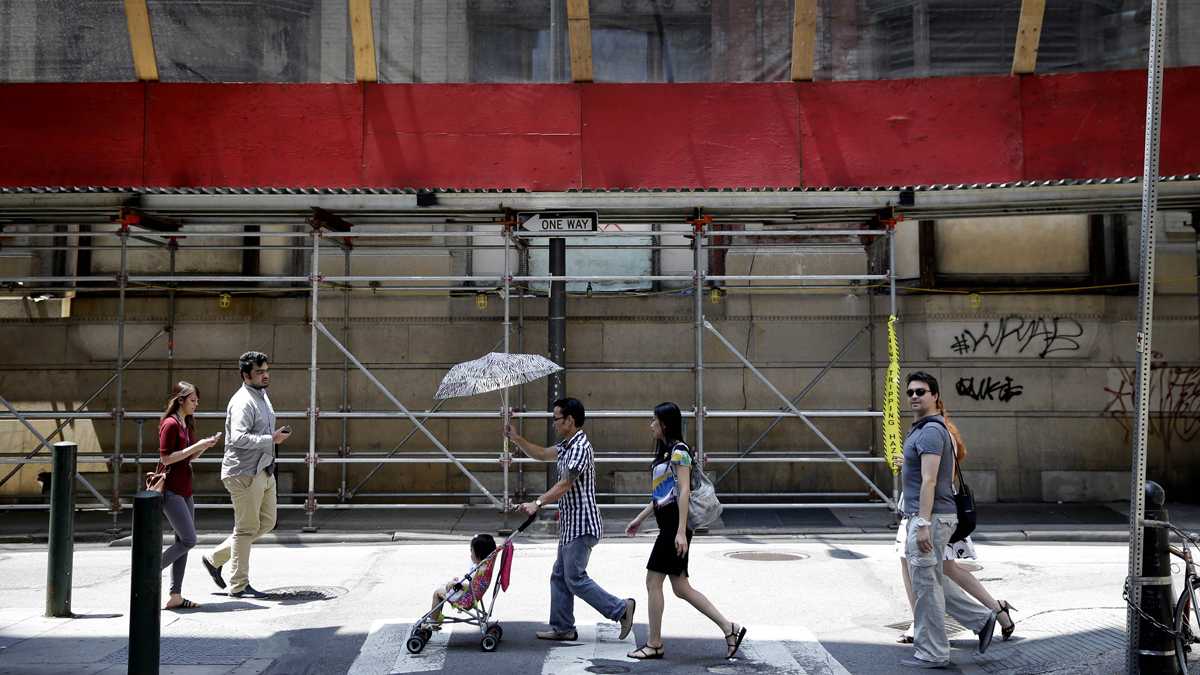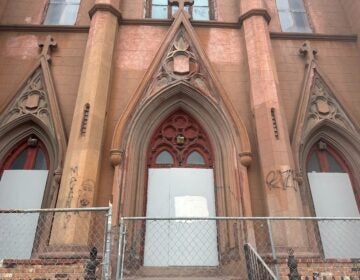City budget hearings come to end with no consensus on who deserves a tax break

City Councilmembers raised difficult questions about tax breaks for developers at a time when costs are rising for residents at a Department of Revenue hearing on Tuesday, the last in a long series of agency appearances before the City Council.
Across the political spectrum, councilmembers called on finance and revenue officials to consider reforms to the city’s ten-year property tax abatement, and raised concerns about spiking assessments and a proposed tax hike for homeowners at a time when programs designed to help them haven’t fully reached their goals.
Councilmembers Helen Gym and Allan Domb both pounced on the abatement as ripe for change. The call for reform comes one month after Council President Darrell Clarke introduced a construction tax widely read to mean that tweaks to the abatement–or its elimination–might be off the table.
Domb, who is also one of the city’s leading real estate brokers, remains unconvinced of the new need for the construction tax, which would levy 1 percent of the cost of constriction for an estimated take of $22 million a year in revenue for the city’s Housing Trust Fund). He recommended tweaking the abatement instead, and graduating it so the full benefit would only last seven years, followed by a 75 percent abatement in year eight, a 50 percent abatement in year nine, and a 25 percent abatement in year 10.
“The construction tax makes the abatement 9.3 percent, and this makes the abatement 8.5 percent,” said Domb. He proposed funding the Housing Trust Fund with that revenue instead of Clarke’s construction tax, which Domb fears could scare off Amazon’s second headquarters, among other developments
Domb’s idea generated criticism from the city’s Chief Financial Officer Rob Dubow.
“The difference between your proposal and the impact tax is that you wouldn’t start to see revenue from your proposal until eight years out,” said Dubow.
DuBow, previewed a forthcoming administration analysis of the tax abatement, which was due in late April. He said the report will be out this week.
“The broad conclusion is that there is still economic value in the abatement,” said Dubow. “Eliminating it would lead to a reduction in jobs and development, although not as much as a reduction as it would have been five years ago. There is no perfect way to adjust it, but the report will show our options in detail.”
Council representative Gym, a longtime critic of the abatement, said she appreciated Domb’s suggestion of a graduated tax abatement. She also said she recognized its importance in stimulating development in areas that aren’t seeing much market activity, a seeming reference to the idea of removing the policy’s benefits from hot markets in Center City but leaving them in place in neighborhoods like Germantown and Southwest Philadelphia where new development remains scarce.
“We need to recognize that [the abatement] is a property bill, a school district bill, a city funding bill,” said Gym. “It’s not an enormous sum of money, but it’s a chunk of money that could have an impact. As the city evolves its important our tools evolve to reflect what is needed and what our institutions deserve.”
Councilmembers also focused on this year’s spiking property tax assessments, and the constellation of programs city politicians have created to keep low-income homeowners out of tax foreclosure.
“There’s been some very strange assessments in Philadelphia,” said Clarke. “I hate to use this word, but its wackadoo. It’s out of control. Clearly something is not happening correctly to these kind of swings.”
Clarke said that by next Thursday his office expects a response to a recent Request For Proposals for an independent audit of the Office of Property Tax Assessments methods.
Councilwoman Maria Quiñones-Sanchez, pushed Revenue Department officials on the need for door-to-door outreach to inform eligible residents of programs like the Homestead Exemption, which the administration hopes to boost in this year’s budget, and the city’s Owner Occupied Payment Agreement program, or OOPA, which City Council announced will be expanded in a targeted fashion.
But Quiñones-Sanchez noted that over 22 percent of those eligible are still not hooked into these relief programs.
“We need to go door to door and explain to people because they aren’t reading the circulars,” said Quiñones-Sanchez. “That similar to what we did with mortgage foreclosure prevention program. Other than boots on the ground I don’t know what else is going to work.”
WHYY is your source for fact-based, in-depth journalism and information. As a nonprofit organization, we rely on financial support from readers like you. Please give today.







